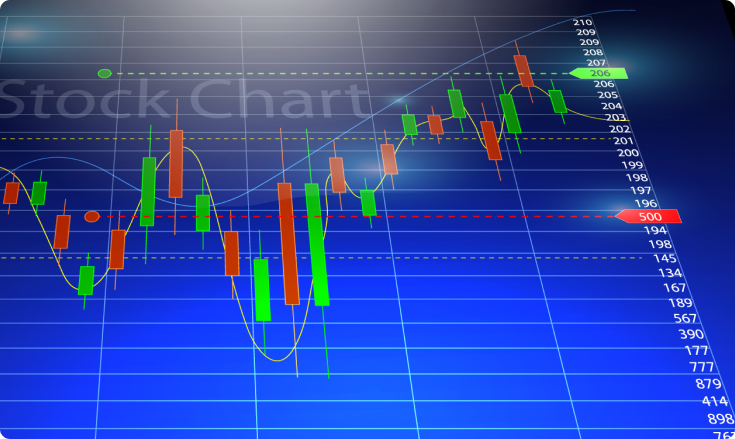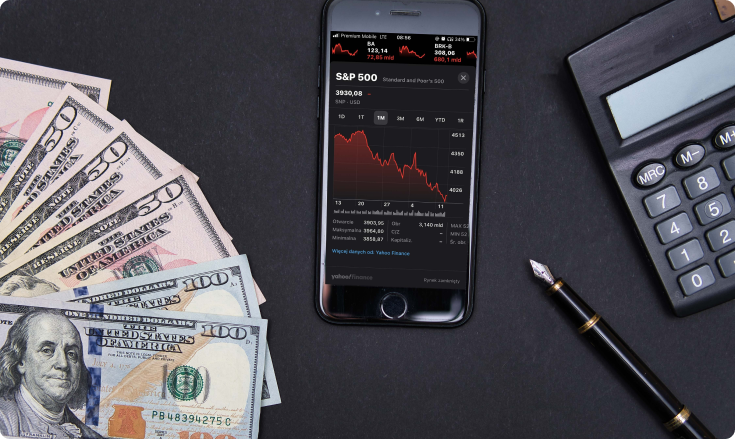What Is The Spread In Trading?

A spread can have several meanings in finance. However, they all refer to the difference between two prices, rates or yields.
The concept is easy to understand and will help you calculate your trading costs.
What is the Spread?
The first time you open your trading platform, one of the things you will notice is two prices referring to one product.
One price is called the selling price and the other is called the buying price. In trading terms, they are called the bid (selling) price and the ask (buying) price. The spread is automatically calculated as soon as you open a position and for your better understanding, the platform will present it on the chart.
A difference between the exchange rate at which the broker buys the currency and the rate at which they sell the currency is called the spread. In other words, the spread is the difference between the selling and the buying price.
How do we calculate the Spread?
To calculate the spread we use pips and the lot size.
So, let’s say you want to trade the GBPUSD currency pair. On the platform you use, you can see the bid and the ask price for this currency pair. At the time of writing this article, this was the bid/ask price: GBP / USD = 1.31310 / 1.31342.
Currency pairs that include the Japanese Yen have a pip on the 2nd decimal place.
When traders observe the price changes, they keep track of the movements in pips.
The next step is subtraction. Because the buying price is always higher than the selling price, our calculation will look like this: 1.31342 - 1.31310 = 0.00032. Therefore, our pip value is 0.00032.
To obtain the spread value, we multiply the pip value with the lot size.
If we opened a position with a standard lot (100,000 units of a currency pair), our spread cost will be: 0.00032 x 100,000 = $32.
Generally, the spread between the two prices is one to five pips. However, depending on the market conditions, it can vary greatly.
GBP / USD = 1.31310 / 1.31342
1.31342 - 1.31310 = 0.00032 pip value
0.00032 x 100,000 = $32 spread cost
Should you choose fixed or variable Spread?
There are two types of spreads - fixed and variable. They differ in many ways and each has its advantages and disadvantages, depending on your trading style.
Variable/Floating Spread
A variable spread, as its name suggests, varies and changes all the time. Instead of a broker setting the fixed spread, the variable spread is highly dependent on the market changes. In this case, brokers gather the prices from liquidity providers and pass these prices to the traders, with minor changes.
Since the broker can’t influence external events and worldwide economics, the variable spread cost is basically formed based on the liquidity of the market.
Pros:
- Spread is normally tighter than fixed ones.
- Transparent pricing. Since spreads are changing all the time, traders can see the exact prices at the moment of placing a trade without any additional information needed, like “requote message”.
Cons:
- It’s not suitable for all trading types. Scalpers, for example, wouldn’t benefit from variable spreads, because with wide spread any possible profit can turn into a loss very quickly.
Fixed Spread
When brokers set a fixed spread it means that they act as a counterparty to their clients’ trades. This type of spread requires brokers to buy large positions from their liquidity providers. Therefore, they can offer these positions to traders in smaller sizes.
Pros:
- It’s easy to calculate the transaction costs. Since traders know the spread cost won’t change they can easily calculate the transaction costs.
Cons:
- Spread is normally higher than variable spread because traders need to pay premiums at all times.
- Requotes. Even though you are trading with a fixed spread, the market is changing and a broker must adjust its costs accordingly. Since these changes happen often there’s not enough time for brokers to incorporate it in the spread cost. Thus, there’s a “requote message” traders get before they place a position. A “requote message” shows traders new trading prices and they can decide whether they want to place an order with new prices or not.
Factors that influence the Spread size

Whether variable or fixed, the spread is subject to change. Major market events and different economic and geopolitical situations impact the values of the currencies and stocks. What happens is that the bid/ask price changes, therefore the spread gets higher or lower.
During economic data releases and in the periods when the market liquidity decreases, spreads widen. For example, if the unemployment rate for countries that use the euro as an official currency comes much higher than anticipated, the euro against most other currencies would lose value.
Time is another important factor. Traders must be careful about the time when they open a trade. When trading on the foreign exchange market, you must know the best time of the day to open a position.
For example, if you want to trade on EUR and you booked your trade during the Asia trading session, the spread will be wider than if you’ve booked it during the European trading session. With this on your mind, you should trade a currency pair only at the time when the majority of traders are trading it.
Conclusion
The spread is the difference between two prices - the bid and the ask price.
A broker can designate a fixed or a variable spread. Both of these have pros and cons and are suitable for different types of traders.
There are many external factors that influence the market, therefore, the spread as well.
It’s important for investors to understand the spread, as well as, when and how it changes so that they can plan their trading strategies accordingly.
Sources Consulted:
LimitPrime © 2026
Begin to invest and
start earning today!
Categories
Do you need personalized assistance?
READ MORE INTERESTING ARTICLES

Diversificationnoun the action of diversifying something or the fact of becoming more diverse. a trading strategy that reduces risk. D...
Read More
As any risk disclosure will tell you, trading financial instruments put the trader at risk of losing some or all of their allocated cap...
Read More
What are indices?Indices measure the performance of a group of stocks, bonds or other investments. These investments are often grouped...
Read More